


This article is devoted to a sensitive topic, particularly in chess, one that has been discussed and decided upon for the last few years. The matter to be discussed today is namely chess cheating.
After a spike of tournament cheating cases in recent years throughout Europe and around the world, we have become increasingly sensitive to the sudden displays of extreme genius over the board by otherwise consistently average players. A case of similar kind has been widely covered by me in 2013, which as a result, led to the exposure of the notorious cheater Borislav Ivanov who was further caught in the act and banned permanently.
Now, in my video below, I want to cast some light on a recent case which in some ways resembles Ivanov’s cheating, though this time, the person is much smarter in trying to avoid all the concrete and circumstantial evidence. Certainly, guilt cannot be unilaterally proven without the relevant FIDE anti-cheating measures being put in place for this type of events, but I can at least give you my point of view on how a carefully planned and crafted cheating may lead to a profitable “career”.
The video I am presenting you below gives my hypothesis of the abnormal cheating patterns applied, I hope they give you some food for thought, as well as the ultimate knowledge to decide for yourself on whether this case was a case of cheating or a streak of multiple wondrous coincidences.
Watch this 37-minute lecture and analysis by Valeri Lilov
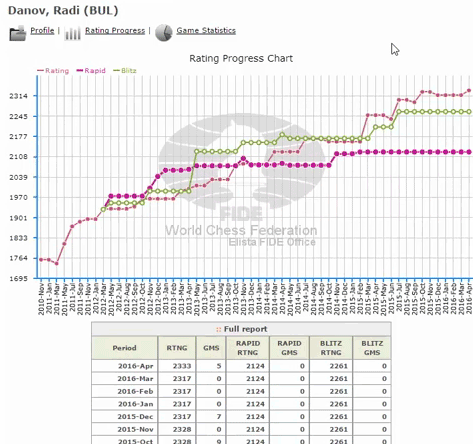
This analysis of Radi Danov's performance is highly speculative and should be treated with caution. On the other hand Lilov has analysed and subsequently unmasked Borislav Ivanov in a similar way (see links at the bottom of this page). And we learn from other sources of suspicious behavior: Radislav Yordanov Atanasov told us that in the fourth round of the Dupnitsa Memorial Lyuben Konstantino tournament Radi Danov beat Ivaylo Enchev. The arbiters asked to check Danov's shoes, but the player refused, whereupon the result of the game was changed in favor of Enchev, and Danov was expelled from the tournament – which he accepted, rather than allow the checking of his shoes! Reminds us of a well-documented shoe incident in the past.
There are a few other worrying points made in Lilov's lecture: one is that a modern cheat would be well advised to use a substandard engine. This is what we have at the top of the engine list:

Now using one of the 3300+ engines for all your moves is very risky. People will find a very high correlation between the cheater's move and those of top engines. In fact ChessBase 13 has a function that does exactly this.

This will tell you, in a simple one-click operation, how many relevant moves (ignoring openings and simple forced recaptures) coincide with those of the top engines. Over 90% is suspicious, below 50% completely innocuous.
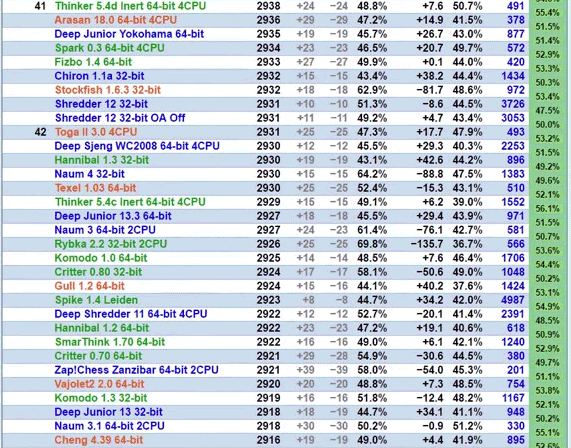
However, as Lilov says: a clever cheater will not use a top engine. He can choose from a hundred engines, all of which have to GM strength – and are usually completely unknown. Lilov also goes so far to suggest that people might use Fritz 5 (and not Fritz 15) and still get sufficient assistance to win the tournament or gain Elo points.
Finally there is a suspicion that players receiving computer assistance might be occasionally using suboptimal lines – ones that retain the win but do not do it with brutal computer efficiency. Kirill Kuznetsov found the following game between Danov and Ukrainian FM Nazar Ustiyanovich suspicious:
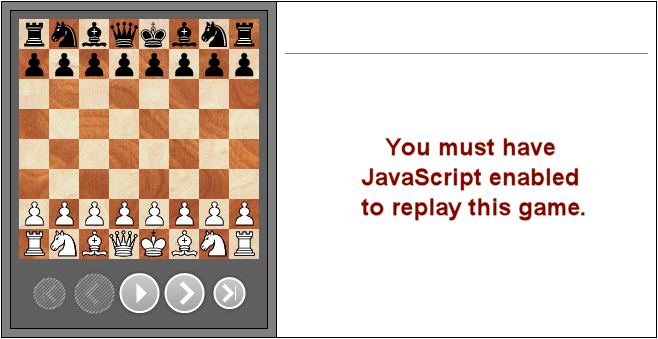
[Event "Bulgarian Chess Summer 2015"] [Site "?"] [Date "2015.06.13"] [Round "?"] [White "Danov, Radi"] [Black "Ustianovich, Naza"] [Result "1-0"] [ECO "B07"] [PlyCount "117"] [EventDate "2015.??.??"] 1. e4 c6 2. d4 d6 3. Nc3 Nf6 4. f3 e5 5. Be3 Qb6 6. Qd2 Qxb2 7. Rb1 Qa3 8. Bc4 Be7 9. Nge2 Qa5 10. O-O Nbd7 11. a4 Qc7 12. Ng3 Nf8 13. f4 Ne6 14. fxe5 dxe5 15. Nf5 O-O 16. d5 cxd5 17. Nxe7+ Qxe7 18. Nxd5 Nxd5 19. exd5 Nd4 20. Bxd4 exd4 21. Qxd4 Qd6 22. Bd3 b6 23. c4 Bd7 24. a5 Rab8 25. Rb2 Rfc8 26. Rfb1 Rc5 27. axb6 Rxb6 28. Rxb6 axb6 29. Qh4 g6 30. Qd8+ Kg7 31. Qxb6 Qe7 32. Qb2+ Qf6 33. Qxf6+ Kxf6 34. Rf1+ Ke7 35. Ra1 Kd6 36. Ra6+ Ke5 37. Ra7 Bf5 38. Be2 f6 39. Rxh7 g5 40. Re7+ Kd6 41. Ra7 Ke5 42. Kf2 Be4 43. Re7+ Kd4 44. d6 Rc8 45. d7 Rd8 46. Bf3 f5 47. g4 Bd3 48. Bc6 Rb8 {[#]} 49. gxf5 $2 (49. Re8 $1 {"A club player will find this move in a second," Kuznetsov writes. Danov, who has completely outplayed his opponent, has a move rated at +18 pawns, but plays one the computer rates at about +5. It still wins, but the path to victory is more complicated than the simple overwhelming 49.Re8 which immediately gets White a queen.}) 49... Bxf5 50. Re8 Rb2+ 51. Kg3 Rb3+ 52. Bf3 Bxd7 53. Rd8 Kxc4 54. Rxd7 Ra3 55. Kg4 Kc5 56. Rd5+ Kb6 57. Rxg5 Kc7 58. Rd5 Kc6 59. Rd3+ 1-0
"On the one hand this is too little proof," Kuznetsov writes, "and the fluctuations can be explained by his lack of understanding of certain positions. But it is a bit strange, isn't it? Perfect play before the result has been achieved, and then some intentional (?) slips to decrease the cheating accusations." [Source: GM Artur Kogan "No more cheating in chess" on Facebook]
 |
Born in 1991, IM Valeri Lilov, better known as Tiger Lilov, is a professional chess trainer from Bulgaria holding a FIDE rating of 2434. As an active tournament player, Lilov won a number of major international tournaments and championships, including the European Individual School Chess Championship U10, held in Moscow in 2000 and the International Open “Kulaga Memorial,” held in Minsk in 2007. IM Valeri Lilov is famous for his personalized approach to training students and professional players up to the IM level from all over the world. To date Valeri has recorded 17 DVDs and 60 minute lectures for ChessBase, with subjects like the Austrian Attack, Tactics in the Endgame, How to fight the Queen's Pawn Openings, Secret Weapon Four Knights Game, etc. You can browse for his products in the ChessBase Shop. At the end of his video on Radi Danov above Lilov says he want to give us an opportunity to think about all this and welcomes comments and opinions in the discussion section below. |
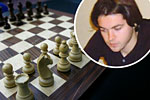 |
Cheating suspicion at the Zadar Open in Croatia 04.01.2013 – In this event, with 16 GMs and a host of other strong players, one participant stood out especially: the 25-year-old untitled Bulgarian Borislav Ivanov scored 6.0/9 points, with a rating performance of 2697. In the January FIDE list Ivanov has gained 115 points over his previous 2277 rating, gained in over 400 games over three years. A certain suspicion once again raises its ugly head. |
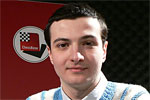 |
Cheating scandal in Croatia – feedback and analysis 08.01.2013 – Recently we reported that the incredibly brilliant play by a 25-year-old untitled Bulgarian player at the Zadar Open in Croatia had raised suspicion that he might have been using illicit electronic assistance during his games. A number of readers criticised us – for linking to the mainstream Croatian media reports?! One of them, an expert in the field, actually analysed all the games in question. |
 |
Cheating scandal – Borislav Ivanov speaks out 17.01.2013 – Recently a 25-year-old untitled Bulgarian player scored 6.0/9 points in a strong GM tournament, with a 2697 performance. His opponents complained, he was searched, and no electronic equipment was found. Still, the case put chess on the front pages of the mainstream media, and led to intense discussions on the Internet. Now Ivanov has given the Russian news portal WhyChess an exclusive interview. |
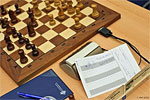 |
Cheating scandal in the Bundesliga – readers' reactions 30.10.2012 – It will surprise nobody that there were a very large number of messages that poured in regarding our recent report on the disqualification of a Bundesliga player for carrying a cellphone to the bathroom during his games. Here's a small selection of letters, plus a thoughtful article by Assistant Professor Kung-Ming Tiong of Malaysia, comparing the problem in chess with academic cheating. |
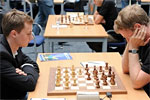 |
Cheating scandal: player disqualified for cell phone use 27.10.2012 – Actually, as the accused player, German GM Falko Bindrich, points out: not for proven use but for refusing to allow the arbiter to examine the phone he had with him during multiple toilet visits during last weekend's Bundesliga round. The rules permit the arbiter to check in case of justified suspicion, and so Bindrich was disqualified and the point awarded to his opponent. Long, compelling read. |
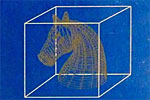 |
A history of cheating in chess (1) 29.09.2011 – Hardly a month goes by without some report of cheating in international chess tournaments. The problem has become acute, but it is not new. In 2001 Frederic Friedel contributed a paper to the book "Advances in Computer Chess 9". It traces the many forms of illicit manipulations in chess and, a decade later, appears disconcertingly topical and up-to-date. We reproduce the paper in five parts. |
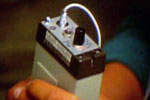 |
A history of cheating in chess (2) 04.10.2011 – Coaching players during the game is probably the most widespread form of cheating (rivaled only perhaps by bribery and the throwing of games). Although this practice began long before the advent of chess playing machines, computers have added a new and dramatic dimension to this method of cheating in chess. You will never guess: who were the pioneers of cheating with computers? |
 |
A history of cheating in chess (3) 18.12.2011 – In January 1999 the main topic of conversation amongst top players like Kasparov, Anand and others: who was the mysterious German chess amateur, rated below 2000, who had won a strong Open ahead of GMs and IMs, with wonderfully courageous attacking chess and a 2630 performance? How had he done it? Turns out it was with unconventional methods, as subsequent investigation uncovered. |
 |
A history of cheating in chess (4) 28.2.2012– Las Palmas 1996: Garry Kasparov is agonizing over his 20th move against Vishy Anand. He calculates and calculates but cannot make a very tempting pawn push work. Immediately after the game he discovers, from his helpers, that it would have won the ultimately drawn position. The point that became clear to him: a single bit of information, given at the top level in chess, can decide a game. |
 |
A history of cheating in chess (5) 10.6.2014 – A few weeks ago FIDE took first executive steps to combat the most serious threat that the game of chess currently faces: the secret use of computer assistance during the game. In a paper written fourteen years ago Frederic Friedel had first drawn attention to the dangers that are lurking. We re-published this historical document in four parts. Here is the fifth and final section. |